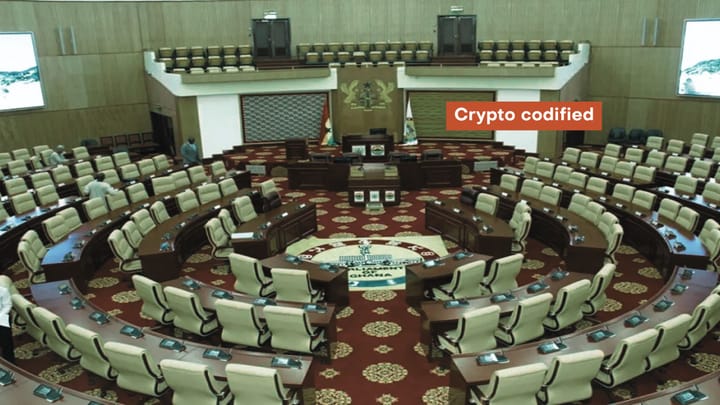Ripple to provide digital assets custody services for Absa’s users
The move combines modern digital asset technology with the security and trust of a tradfi institution to provide digital asset custody.

Global blockchain firm Ripple has partnered with South Africa’s Absa Bank to enable the bank to securely hold digital assets for its customers.
Through the partnership, Absa will use Ripple’s technology to custody cryptocurrencies and tokenized real-world assets on behalf of users.
The details
- Ripple, announcing the development on October 15, said the partnership makes Absa its first major custodial partner in Africa and expands its footprint on the continent even further.
- While Absa is not pivoting into crypto exchange services, it is merely providing a means for its institutional clients to store their digital assets with it, akin to traditional banks safeguarding valuables for their users in vaults.
- The partnership rides on Ripple’s custodial service launched a year ago to help its traditional banking and fintech partners hold digital assets for customers.
- The service is integrated into the XRP Ledger, Ripple’s blockchain network, and comes with in-built anti-money laundering risk monitoring.
- With the partnership, Absa becomes one of the first traditional banks to provide crypto custody services to customers in Africa amid an evolving regulatory environment for digital assets.
Key quotes
- Robyn Lawson, Absa Corporate and Investment Banking’s head of digital assets product custody, said:
“As we continue to innovate and respond to the evolving financial ecosystem, we recognize the importance of providing our customers with secure, compliant, and robust custody solutions for their digital assets.”
- She added:
“Ripple’s custody solution allows us to leverage proven and trusted technology that meets the highest security and operational standards. Together, we can deliver the next generation of financial infrastructure to our customers.”
Why this matters
- Digital asset custody is typically offered by crypto exchanges, which are equipped with the technology to both store and trade users’ assets.
- However, these exchanges — still relatively new players — lack the institutional trust that traditional banks have built over decades in the financial system.
- This is because these banks are strictly regulated and have built a reputation to protect consumer funds over a long period of time.
Meanwhile
- In contrast, custodial exchanges have sometimes faced security breaches, the most notable being the hack of global exchange Bybit earlier this year.
- In that singular occurrence, hackers believed to be North Korea-sponsored siphoned $1.5 billion in Ethereum from the exchange, sparking debates about the security of custodial exchanges.
- Absa’s foray into crypto custodial services will combine the security and trust of a major traditional bank with Ripple’s advanced blockchain infrastructure to enable the secure storage of digital assets.
- This can deepen institutional crypto adoption, especially considering more favorable crypto regulations already in place in South Africa, a country which has licensed more than 240 crypto firms.
Before now
- Ripple’s partnership with Absa marks another step in expanding its footprint across Africa.
- Earlier in the year, Ripple tapped African fintech Chipper Cash to enable faster cross-border payments into Africa using digital assets via Ripple’s payments platform.
- Shortly after, Ripple joined forces with Mercy Corps Ventures and nonprofit DIVA Donate, contributing $25,000 in a pilot program supporting Kenyan herders hit by drought.
- Last month, the blockchain firm partnered with Chipper Cash, Valr and Yellow Card to expand access to its United States dollar-pegged stablecoin RLUSD into Africa.



